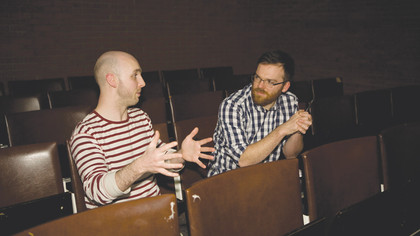The software patent campaigners: fighting for freedom
We meet End Software Patents
So we have issues such as fields of technology, and the TRIPs (Trade Related aspects of Intellectual Property rights) agreement says innovations in all fields of technology are patentable. The result is that to get software excluded we had to argue that software isn't technology.
Obviously, for software developers this is a bit weird, but when you look at copyright convention, the Berne Convention for the Protection of Literary and Artistic Works says that software is to be protected as literary work. So software is a work of authorship, and works of authorship don't have to be technologies.
LXF: Is the situation the same all over the EU?
CO'R: The current proposal is that they want to have an EU patent. Now, the EU has 23 languages. The problem is that if you want to have a patent for the EU then you have to register it at each patent office, and in each language that the patent office accepts, so you end up having to translate your patent into 23 languages.
So to make software patents cheaper, the European Union wants to create this single patent. Sometimes they propose that they will only publish it in English, with machine translations in every other language. Sometimes they propose English, French and German, and then Spain gets annoyed, and then Italy gets annoyed - and if Spain and Italy get their way then Poland wants its way as well.
To avoid that, the EU wants to publish everything in just English, or just English, French and German, and have these patents valid in the whole EU; and they'll translate the patent only if there is litigation. But, of course, by then it will be too late, because that means that somebody will presumably already have violated the patent; so if there are 20,000 patents and you don't speak English, French or German, you don't know what those patents are.

LXF: That's Kafkaesque…
Sign up for breaking news, reviews, opinion, top tech deals, and more.
CO'R: But for us, this is actually one of the good aspects, because this is one of the reasons that the proposal has taken so long. It's been delayed over and over again. It isn't actually part of the problem for free software developers, it's a democratic problem for us in general.
For free software developers, the main problem is that if you're going to have these central patents the next logical step is which court will interpret them, because if each national court is going to interpret them then you're going back to the old situation, where the UK said no and France said yes and Germany said no, etc.
So the logical next step is that we need to have a centralised court. That gives you a specialised court that can be reviewed by the European Court of Justice, or maybe by national courts, but those courts will see this court as a court of experts, so they end up being afraid to disagree with it, as we've already seen in the UK.
So this court of patent lawyers will basically replace the national courts. We're going to see the patent office granting patents, the legislation being ignored and the courts approving these granted patents.
LXF: Are there any politicians who you think get it?
CO'R: The European Parliament - the politicians there are actually pretty good. That's the body the Free Software Foundation managed to convince in 2003 and 2005 to accept our amendments to exclude software from patentability.
In 2003 they adopted all our amendments, and that was basically a complete victory. If the text was adopted as is, Europe would be completely safe today. However, then the European Council, and then the Council of Ministers, discarded all these amendments.
So, in 2005 when the European parliament got to look at it a second time, they were going to adopt all our amendments again, but then they said: "What's the point if the council is just going to discard them all again? There's no point in us doing our work of amending."
So they just rejected the directive outright. That was kind of a victory for us because we avoided the worst-case scenario, but it's also what Microsoft and IBM and SAP wanted, because they saw they were losing so they pulled the plug on the whole project; so they were also happy to not have lost.
For us, legislation is the best way to fix the problem, but we have to be in a strong position in terms of knowing we're going to win, and we've got to make sure the process reaches the end phase and the legislation gets adopted.